Making the classical aspects of the burgeoning indie classical movement abundantly clear, crossover albums are now crossover marketing musical scores. Via his website, composer Owen Pallett has released a limited edition score for the music on Heartland, his latest Domino recording.

Joined by the Czech Symphony Orchestra and a host of guests (including composer Nico Muhly) Pallette has crafted his most consistently engaging music to date. In some critical circles, indie classical has, rightly or wrongly, been under the microscope for making pop into a ‘longhair’ genre, robbing it of its immediacy in favor of overt sophistication. I’d submit that this vantage point doesn’t give enough credit to indie audiences, who seem to be just fine grappling with orchestral arrangements by Pallett and electronic experiments by Animal Collective alike.
What’s more, recordings like Heartland amply demonstrate that one can, if they’re talented, craft sophisticated music that has just as many catchy hooks as a three-chord, three-minute anthemic single. A case in point is the loop-laden and jaunty “Lewis Takes off his Shirt;” the music, and the video below, suggest that pop can indeed combine sophistication with immediacy, and that its orchestral incarnation can be downright cheeky!
[youtube]http://www.youtube.com/watch?v=7G-cqAehehA[/youtube]
___________________________________
For those of your with a case of ‘artifact avarice,’ the full orchestra score for Heartland is $46 and has been printed in a limited run of 300. In addition to the music it also provides lyrics and a chart of diagrams of patches for the ARP 2600.
Owen Palett’s touring a bunch in support of Heartland. Here are some dates:
04-08 Toronto, Ontario – Queen Elizabeth Theatre
04-10 Chicago, IL – Lincoln Hall
04-11 Minneapolis, MN – Varsity Theater
04-12 Milwaukee, WI – Turner Hall
04-13 Columbus, OH – Wexner Center
04-14 Pittsburgh, PA – Andy Warhol Museum
04-15 Washington DC – Black Cat
04-18 Indio, CA – Coachella Festival
04-20 Boston, MA – Institute of Contemporary Art
04-22 New York, NY – Webster Hall
04-24 Baltimore, MD – Metro Gallery
04-25 Philadelphia, PA – First Unitarian Church
04-27 Atlanta, GA – The Earl
04-29 Dallas, TX – Granada Theater
04-30 Austin, TX – The Mohawk
05-05 San Francisco, CA – The Independent
05-08 Seattle, WA – The Crocodile
05-09 Vancouver, British Columbia – The Vogue Theatre
05-10 Victoria, British Columbia – Alix Goolden Hall
05-11 Portland, OR – Aladdin Theater
05-13 Salt Lake City, UT – Kilby Court
05-14 Denver, CO – Larimer Lounge

 The 15th Other Minds Festival kicks off this evening, offering San Francisco a three-day immersion in contemporary music from around the world. One of the locals headlining this year is
The 15th Other Minds Festival kicks off this evening, offering San Francisco a three-day immersion in contemporary music from around the world. One of the locals headlining this year is 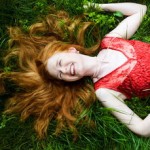 Saturday, March 27 at
Saturday, March 27 at 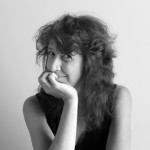 Monday, March 15 at
Monday, March 15 at 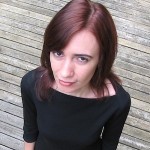 March 4th-6th at
March 4th-6th at 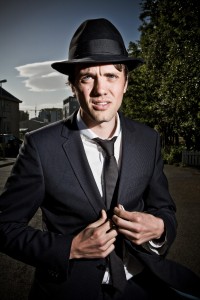
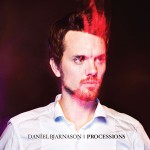 I talked with Bjarnason on the phone Monday night after a rehearsal in NYC for his upcoming Le poisson rouge concert and his new release, Processions:
I talked with Bjarnason on the phone Monday night after a rehearsal in NYC for his upcoming Le poisson rouge concert and his new release, Processions: 2009 Frederic A. Juilliard/Walter Damrosch Rome Prize winner
2009 Frederic A. Juilliard/Walter Damrosch Rome Prize winner  Composer, arts administrator, educator, and now, festival curator,
Composer, arts administrator, educator, and now, festival curator,  Columbia’s own Southern Exposure New Music Series and xMUSE (University of South Carolina’s Experimental Music Studio, directed by Reginald Bain) combine forces once again to present an evening of genre-bending music and technology. The
Columbia’s own Southern Exposure New Music Series and xMUSE (University of South Carolina’s Experimental Music Studio, directed by Reginald Bain) combine forces once again to present an evening of genre-bending music and technology. The  The concert also features Lois V. Vierk‘s Go Guitars for five electric guitars, influenced by traditional Japanese court music, and Reginald Bain‘s Jovian Images, inspired by NASA photographs of planets and performed by renowned saxophone virtuoso Susan Fancher. Admission is free (
The concert also features Lois V. Vierk‘s Go Guitars for five electric guitars, influenced by traditional Japanese court music, and Reginald Bain‘s Jovian Images, inspired by NASA photographs of planets and performed by renowned saxophone virtuoso Susan Fancher. Admission is free (
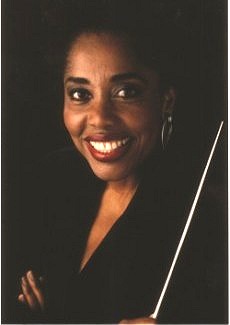 Sure, the recession has caused for cutbacks in the arts. But composers are a resilient bunch. This week, New York City will be the site for the first
Sure, the recession has caused for cutbacks in the arts. But composers are a resilient bunch. This week, New York City will be the site for the first